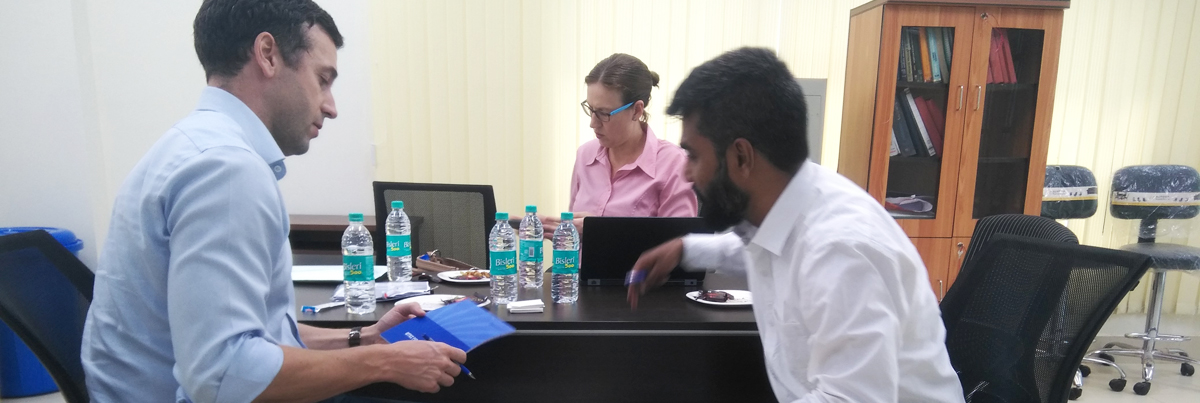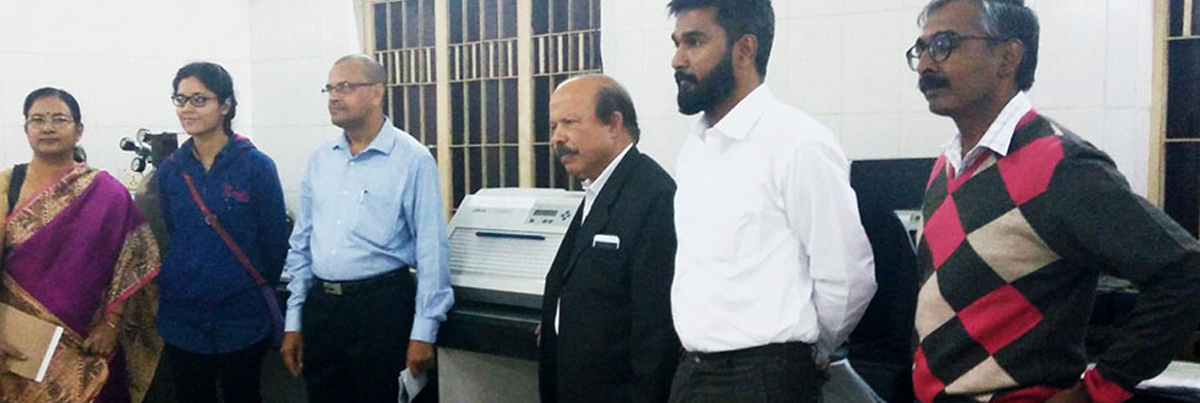













Ongoing Project
Background: Stunting is reported to affect nearly a half of all children in India. Globally, it is associated with poor health and social outcomes in affected children. There is a direct link between growth deficits in childhood and the frequency of gastrointestinal and other infections in childhood. The effects of these infections are likely to be more severe when the gut microbiome is not sufficiently resilient to withstand these infections.
 Resistant starch is the amount of total starch consumed which escapes digestion in the small intestine, reaching the large intestine where it becomes a substrate for resident microbes, producing short chain fatty acids (SCFA). This increase in short chain fatty acids results in an environment in which beneficial microbes prosper, ultimately leading to a healthier microbiome in the large intestine and therefore acting as a 'prebiotic'. Our primary hypothesis is that feeding this prebiotic starch (in the form of high amylose maize starch or' HAMS') to young women and to infants will beneficially alter their faecal microbiomes, which in the long term potentially leads to improved intestinal function, growth, and cognition.
This ongoing study, resistant starch provided in the form of high amylose maize starch/HAMS- flavoured milk shake will improve the colonic microbiome of infants and women of child-bearing age and that improved health outcomes in growth, development and cognition will result. This study addresses the gap in current knowledge regarding if early-weaning infants have the capacity to ferment resistant starch and if this fermentation results in beneficial changes to the microbiome.
Resistant starch is the amount of total starch consumed which escapes digestion in the small intestine, reaching the large intestine where it becomes a substrate for resident microbes, producing short chain fatty acids (SCFA). This increase in short chain fatty acids results in an environment in which beneficial microbes prosper, ultimately leading to a healthier microbiome in the large intestine and therefore acting as a 'prebiotic'. Our primary hypothesis is that feeding this prebiotic starch (in the form of high amylose maize starch or' HAMS') to young women and to infants will beneficially alter their faecal microbiomes, which in the long term potentially leads to improved intestinal function, growth, and cognition.
This ongoing study, resistant starch provided in the form of high amylose maize starch/HAMS- flavoured milk shake will improve the colonic microbiome of infants and women of child-bearing age and that improved health outcomes in growth, development and cognition will result. This study addresses the gap in current knowledge regarding if early-weaning infants have the capacity to ferment resistant starch and if this fermentation results in beneficial changes to the microbiome.
Objectives:
- To determine the ability of a prebiotic resistant starch in the form of HAMS to favourably alter faecal microbiota composition and reduce enteric pathogen burden in women of childbearing age.
- To determine the ability of HAMS to favourably alter faecal microbiota composition and reduce enteric pathogen burden in early-weaning infants.
Laboratory assessment:
pH and short chain fatty acids will be measured using current protocols. Stool DNA will be extracted following current protocols. Abundance of known enteric pathogens will be assessed by real time polymerase chain reaction. Deep sequencing of the DNA will be done to assess the nature of the microbiota. Specifically, laboratory assessments will focus on the abundance of the following bacteria in the stool samples: Prevotella, Ruminococcus, Lactobacillus, Bacteroides and Bifidobacterium.
The main objective of this study is to investigate the association of vitamin D status and gut microbiome on KOA.

The central hypothesis is that there is an early onset and progression of KOA in patients with vitamin D deficiency. VDD may alter gut microbiome due to unregulated inflammation and increased gut permeability. This, in turn, forms a vicious cycle where VDD and associated dysbiosis leads to progression of KOA and worsening of patient's quality of life.
Predominance of fecal bacteria

Group2: VDD
Group3: KOA with NVD
Group4: NVD
Amla ( Emblica officinalis ) is one of the most important indigenous fruit of India. The fruit is rich in phytochemicals important for human health. Several researchers have depicted it's pharmacological properties. The current study aims at value addition and preservation of amla through probiotic fermentation. The product can be available round the year rather than only during the harvesting season of amla.

